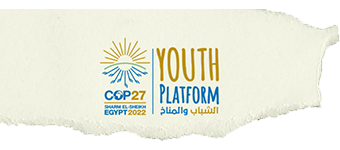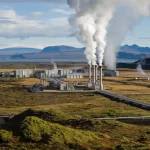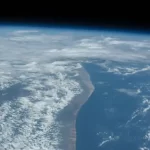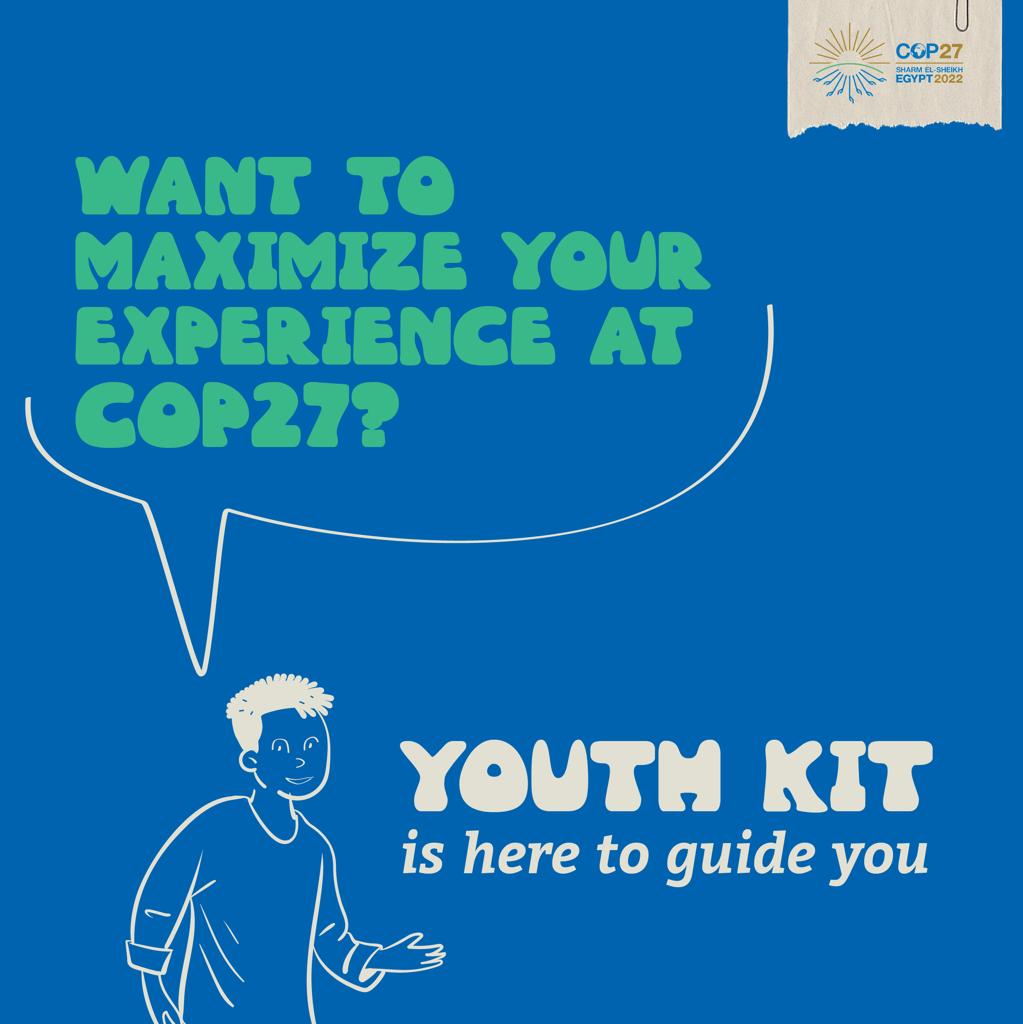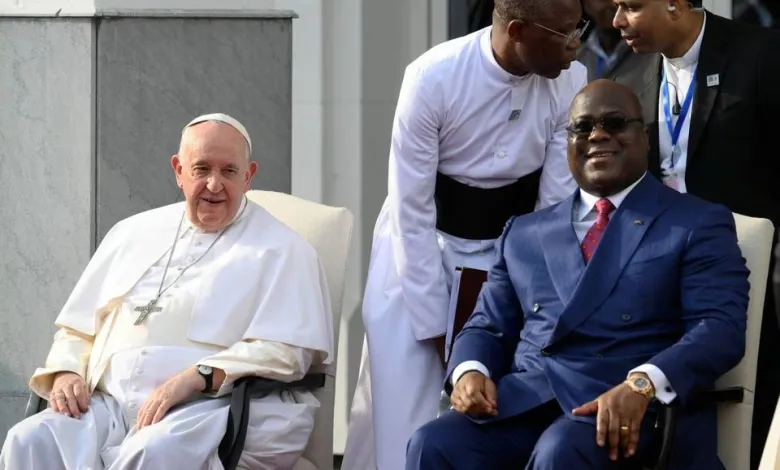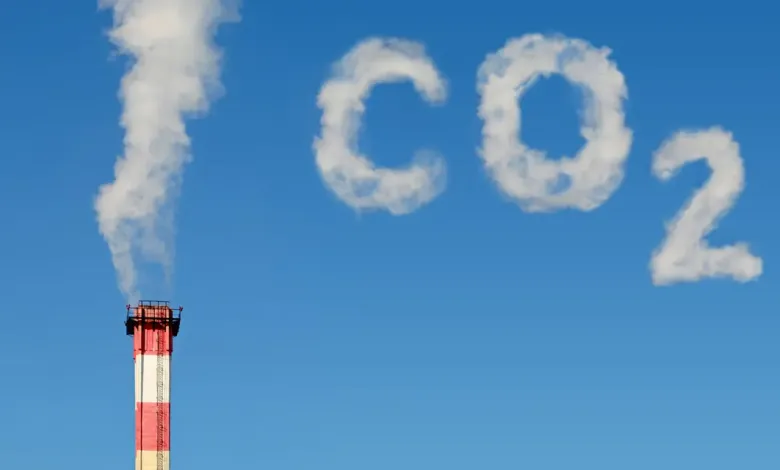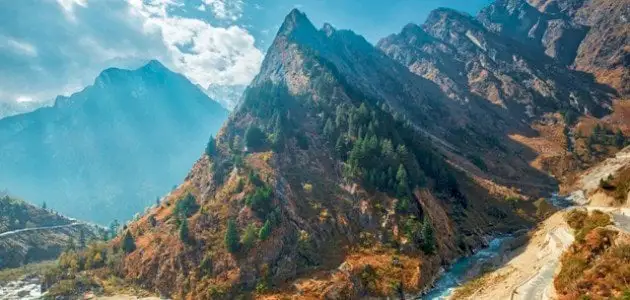Pope Francis denounced the “poison of greed” driving conflicts in Africa when he began a visit to the Democratic Republic of the Congo (DRC) on Tuesday, saying “the rich world must realize that people are more precious than the minerals in the earth beneath them.”
But the happy atmosphere, one of the most energetically welcoming of his foreign trips, turned somber when the 86-year-old pope, speaking to dignitaries in the presidential palace, denounced the “terrible forms of exploitation, unworthy of humanity” in Congo, where mineral wealth has fueled Massive wars, displacement and hunger.
“Hands off the Democratic Republic of the Congo, hands off Africa, stop strangling Africa: it is not a mine to be stripped or land to be plundered,” Francis said.
Linking mining to inhumane exploitation
Congo has some of the world’s richest deposits of diamonds, gold, copper, cobalt, tin, tantalum, and lithium, but it has fueled conflict between militias, government forces, and foreign invaders. Mining has also been linked to the inhumane exploitation of workers, including children, and environmental degradation.
“It is a tragedy that these lands, and in general the entire African continent, continue to endure various forms of exploitation,” the pope said. People listening to a French translation applauded again and again.
“The poison of greed has stained diamonds with blood,” he said, referring specifically to Congo.
Adding to the country’s woes, eastern Congo is plagued by violence linked to the long and complex repercussions of the 1994 genocide in neighboring Rwanda.
Congo accuses Rwanda of supporting the March 23 rebel movement fighting government forces in the east. Rwanda denies this.
“Beside the armed militias, the foreign powers thirsty for the minerals present in our land, with the direct and cowardly support of our neighbor Rwanda, are committing monstrous atrocities,” said Congolese President Felix Tshisekedi, speaking directly before the Pope at the same podium.
The pope did not mention Rwanda in his address, nor did he take sides in the dispute.
Rwandan government spokesman Yolande Makulu dismissed Tshisekedi’s remarks. “This absurd obsession with scapegoating Rwanda is clearly President Tshisekedi’s electoral strategy – a distraction from his government’s poor performance, and failure to provide assistance to its citizens,” she said.
“rooted in violence”
The United Nations estimates that an estimated 5.7 million people are internally displaced in the Congo, and 26 million suffer from severe hunger, largely due to the impact of armed conflict.
About half of Congo’s 90 million people are Roman Catholic, and the church plays a crucial role in running schools and health facilities in the sprawling central African country, as well as promoting democracy.
The Pope criticized the rich countries for ignoring the tragedies taking place in the Congo and elsewhere in Africa.
“One gets the impression that the international community has practically succumbed to the violence that it (Congo) is devouring,” he said. We cannot get used to the bloodshed that has engulfed this country for decades, killing millions.”
Tshisekedi made a similar point: “While the international community remained passive and silent, horrifically more than 10 million people were killed.”
The pope’s trip, first scheduled for last July, was postponed due to an outbreak of a chronic knee disease. Francis had originally planned to travel to Goma, in eastern Congo, but that stop was canceled due to renewed fighting between M23 rebels and forces. government.
In an apparent reference to the March 23 Movement and other militias active in the eastern regions of Congo, the pope said the Congolese people are fighting to preserve their territorial integrity “against the deplorable attempts to divide the country.”
On Wednesday, Francis will celebrate Divine Liturgy at Kinshasa airport, which is expected to attract more than a million people. He will also meet victims of violence from the east. Francis will remain in Kinshasa until Friday morning, when he will head to South Sudan, another African country plagued by conflict and poverty.
Accompanying him at that stage of his trip is the Archbishop of Canterbury, leader of the global Anglican Communion, and coordinator of dialogues in the Church of Scotland. The religious leaders have described their joint visit as a “peace journey” to the world’s newest country.
